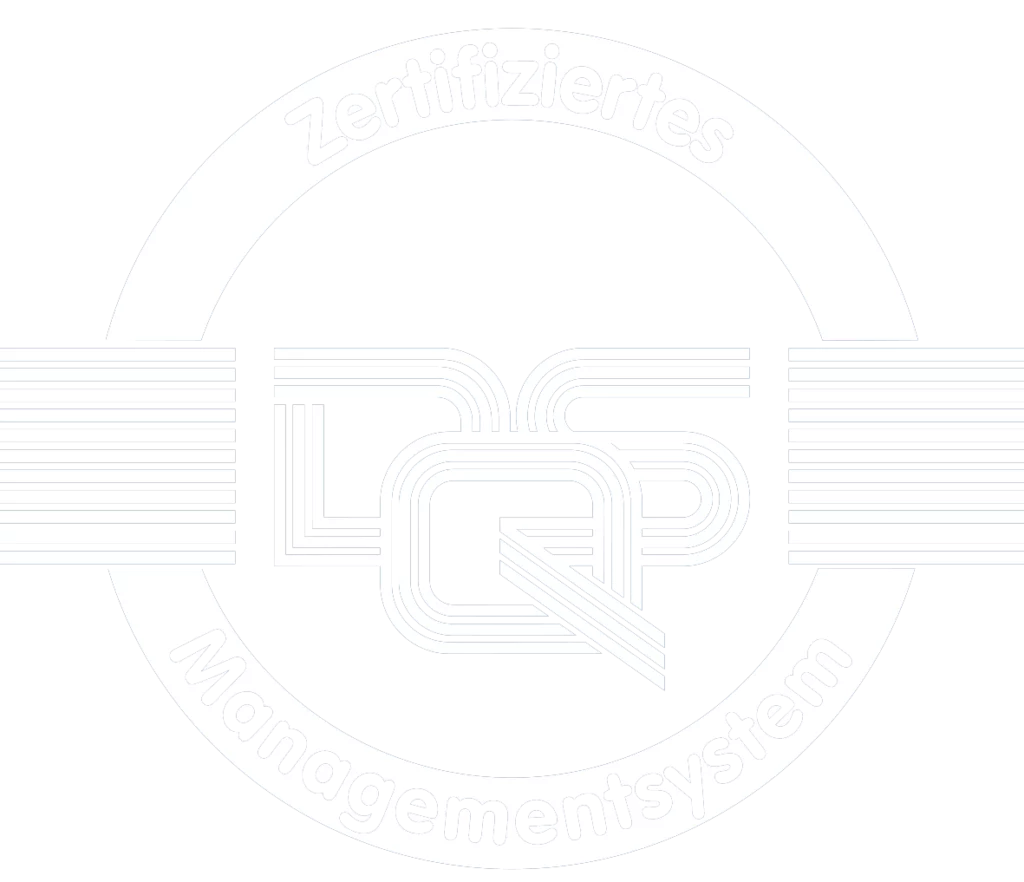The word MarTech means the collection of digital tools, software applications, and other technologies that enable and enhance the work of marketing, especially but not exclusively online marketing.
It represents the meeting point of two different industries, that of tech and that of marketing, and it is crucial particularly to the future of the latter.
At the same time, it is an emerging field, one which has been evolving and changing so fast that even experienced recruiters are having trouble keeping up with what it is and how it is used.
In this guide, we will provide you with an exact and detailed explanation of what MarTech is today, how it works, what it does, which technologies constitute it, and why it is not just important but vital for everyone who works in marketing.
CONTENTS
- What Is MarTech – Basic Definitions
- Do You Need To Know Programming To Know Martech?
- What Is The Difference Between Martech And Adtech?
- Why Is MarTech The Future?
- What Does A MarTech person do?
- What Is A MarTech Stack?
- The Holy Trinity: Data Analytics, Data Visualisation & Measurement
- AB Testing
- Content Creation
- Social Media & E-mail Marketing
- Sales and Customer Relationship Management
- Addendum – Shared Technologies
- Conclusion: A Time Of Opportunity
What Is MarTech – Basic Definitions

It may help to start from the fundamentals, with the definitions of the terms involved.
MarTech is a portmanteau word combining the terms “marketing” and “technology”.
Marketing is defined as the discipline of finding and determining a target market, and connecting it to a particular business or product. The American marketing Association has explored the official definition in much greater depth, for those wish to look into the topic further.
While there are various types of marketing, for the purposes of this article we are especially interested in that which happens on the internet, i.e. online marketing.
The “tech” in MarTech refers not so much to technology in the broader sense, but more precisely to the tech industry, meaning those businesses that work with information technology, software, computers, data and artificial intelligence, among many other things.
This is how MarTech came to be the meeting point of these two industries, comprising under its umbrella definition all of the contemporary digital tools and technologies that let marketers (particularly online marketers) do their job.
Do You Need To Know Programming To Know Martech?

MarTech experts will make use of a variety of digital tools. That doesn’t make them programmers. Rather, programmers are the ones who created those tools, which is a whole other line of work.
An expert in MarTech is not necessarily a programmer, and in most cases will not be expected to write computer software, in the same way that a Formula 1 pilot is not a car engineer and will not be expected to build cars.
If you wish to learn MarTech, you do not have to learn coding at much more than the basic levels (although of course, anything you learn in this field will be helpful).
However, you will have to become fluent in the language of technology. An expert in MarTech will not be expected to create a website all by themselves, but they should know how a website works.
If someone in their team tells them there is a problem with the company’s client-server architecture, the MarTech specialist can’t afford to not know what that means.
What Is The Difference Between Martech And Adtech?

MarTech is sometimes either confused with or lumped together with AdTech. AdTech is also a collection of business technologies, but its domain is advertising rather than marketing – two fields which are, of course, related but different.
Similarly, AdTech undeniably has a relation to MarTech, and at times they may overlap or cross-pollinate. But the two are not the same thing.
As a set of tools for building online advertising campaigns, AdTech has a narrower focus. It is about influencing consumer behaviour, and not so much about understanding and communicating with a given market (customer feedback and reviews, for instance, are largely outside of its domain).
AdTech is also more likely to use anonymous data, and its approach in relation to its customers is bound to be less personalised.
A more detailed analysis of the differences between MarTech and AdTech may be the subject of its own article in due time. For now, just be aware that these are separate fields which stand roughly in the same relation to each other as marketing does to advertising.
Why Is MarTech The Future?

Marketers who choose not to learn anything about MarTech do so at their own professional peril.
Marketing, like so many other industries, has become inextricably intertwined with the digital world. Online technologies are what people use to shop, look for products, research their reviews, and talk to each other.
A marketer who is able to interface with these technologies therefore puts themselves in a position of critical advantage, both in terms of broader understanding and in operational skills.
The majority of the information (the data) necessary to do marketing today can be collected with a variety of free measurement tools – a process that is sometimes surprisingly easy for those with the know-how.
On top of this, MarTech facilitates the integration of marketing with other operations, most notably sales. This increases the internal synergy of a business and the overall efficiency of multiple departments.
There are no signs at the moment that the digital transition will be reversible. The importance of MarTech is only going to keep growing, and in due time – not yet, but in due time – it may well become an indispensable, unavoidable part of every marketer’s curriculum.
To put it simply, MarTech is the future. You are free to embrace it or reject it – but it’s certainly not going to go away.
What Does A MarTech Person Do?
There is no such thing as a ‘MarTech person’. There are too many technologies in this field for anyone to master them all, but there are various specialists with expertise in a subset of specific tools.
For an example of what one such specialist may do on their job, check out our extensive guide on what it means to work as a Digital Marketing Analyst.
What Is A MarTech Stack?

A MarTech stack is the set of digital tools that a given marketing team will use recurrently and consistently in their operations.
It is sometimes known as a ‘marketing stack’, and it’s something that every modern marketing team should have.
MarTech stacks can vary wildly from each other, because the number of technologies used in this field is enormous – just have a look at what the ‘MarTech map’ for 2022 looks like.
However, we can look at the types of technologies that are used in this field. A team’s MarTech stack will usually include at least one tool to take care of each of the following.
The Holy Trinity: Data Analytics, Data Visualisation & Measurement

Technologies that are about gathering and interpreting data have had momentous effects on a number of industries. Marketing is unquestionably one of them: crucial to optimising your campaigns is hard data about how your customers respond to them.
Collecting data, in the context of MarTech, is better described as tracking – for example, tracking how many people click on a certain part of your website. This involves the use of tag management systems such as Google Tag Manager, or the solutions provided by Piwik PRO and Tealium.
Analysing data is a whole other specialism than collecting it. It usually requires a lot of critical thinking, and is the field where technology will be least decisive to your work. But this is a far cry from saying that it is not important!
Google Analytics has, predictably, emerged as the pre-eminent technology for web and app analysis in MarTech. It is not the only one, however. Among its competitors we find Piwik PRO, Matomo, etracker, or the open source JavaScript library walker.js.
Finally, we should mention tools like Tableau and Google Data Studio, which are about visualizing data in the form of graphs and reports.
AB Testing

MarTech means doing marketing not based on pure intuition, but on verifiable numbers. And this means being able to test your strategies in order to unearth those numbers.
AB testing is a common responsibility for a marketing technologist. The process involves first creating two versions of something online (a landing page, a slogan, or even smaller things like the colour and position of text or of a button), then tracking how users respond to each version.
AB testing is a surefire way to ensure your online work returns the numbers you are looking for, and may be carried out with technologies like Google Optimize, Optimizely, and AB Tasty.
Content Creation

There are a number of technologies that will either facilitate or straight-up create written and video content for you, such as Copy.ai, Jasper and Synthesia, and of course the world-famous ChatGPT.
We will keep this section short however, as most of the tech related to content is about curation and distribution rather than creation (see the next section), and generally the more creative work in content marketing is still better performed by human beings.
Social Media & E-mail Marketing

Social media and emails are extremely powerful ways of reaching out to a user base and engaging with it. They are also sufficiently different in nature from each other that they each come with their own tech stack.
Popular email marketing tools include Campaign Monitor, ActiveCampaign, Mailchimp, GetResponse and Aweber. Those for social media are Hootsuite, BuzzSumo, Sprout Social, Social Oomph, and Buffer, among others.
While their respective technologies may be different, however, they do serve some similar purposes – curating and customising what is sent out, and then tracking the results.
Tracking in this domain will often involve CDPs, or Customer Data Platforms, which have emerged in the wake of GDPR regulation. User data can no longer be given to third party providers, so larger companies build and manage their own platforms to process it.
Sales and Customer Relationship Management

The measure of a marketing campaign’s effectiveness is whether it converts the interest of customers into actual sales.
But sales requires its own infrastructure, and a specific branch of MarTech deals precisely with that – with the building, the automating, the powering, and the maintaining of the end-game of marketing: online sales.
Larger companies may have proprietary solutions for this, while smaller ones will rely on e-commerce platforms, including ones you’ll likely have heard about, like Shopify and WooCommerce.
CRMs, or Customer Relationship Management systems like HubSpot, are not directly about sales – but of course they have a substantial impact on them, as they will determine customer satisfaction. Other technologies are about managing customer relations as well, such as Chatbots and Customer Service Ticketing tools like Freshdesk.
Addendum – Shared Technologies

MarTech is not a field with rigid boundaries. On the contrary, it often crosses over with other professional worlds.
Many of the technological categories described above – perhaps most prominently, Data Analytics – may and will be relevant in other fields of work as well.
It is at least worth mentioning, in this final part of our guide, that there are some technologies which belong primarily to fields outside of MarTech, but which also find applications within it.
By far the most important example is one we have already discussed above – that of AdTech. While AdTech is a field in its own right, it is not infrequent for some of its technologies to be adopted by marketers, because of course advertising is very much a part of marketing.
But there are also other examples. One is represented by project management software: programs like Jive, Slack, Trello and Asana. These are the tools that will help a team work together and organise their tasks and their budget.
Related to project management but even more tech-specific is agile methodology, as enabled by Atlassian’s Jira. It is increasingly popular with software developers, and since Marketing Technologists work with the latter very closely, it is a prime example of the sort of interdisciplinary tech that they should know about.
Many who are proficient in MarTech will also know how to use some of the above, particularly within larger marketing teams – but they are not tools specific or exclusive to MarTech, nor should they be presented as such in this guide.
Conclusion: A Time Of Opportunity

Back in the 1990s, one could work in special effects for movies even without knowing anything about computer animation. Those who wished to get ahead in their present and guarantee a future in the industry, however, were the first to sit down and learn about Alias and and SoftImage3D – the programs used to make Jurassic Park.
Marketing is in very much the same place today. Yes, it’s still possible to work in the field without knowing much about the technology that serves it.
And yet, the edge that is provided by emerging methods and techniques is undeniable, and points very clearly to the direction this industry is headed in.
Universities have, in recent years, started including technologies in their courses, while specialised bootcamps in MarTech subsets like Marketing Analytics are emerging to service professionals who wish to pick up advanced skills that will serve them years into the future.
If marketing is the world you want to inhabit, then we are in a decade that gives you the opportunity of a lifetime to get ahead. Make the most of it.






